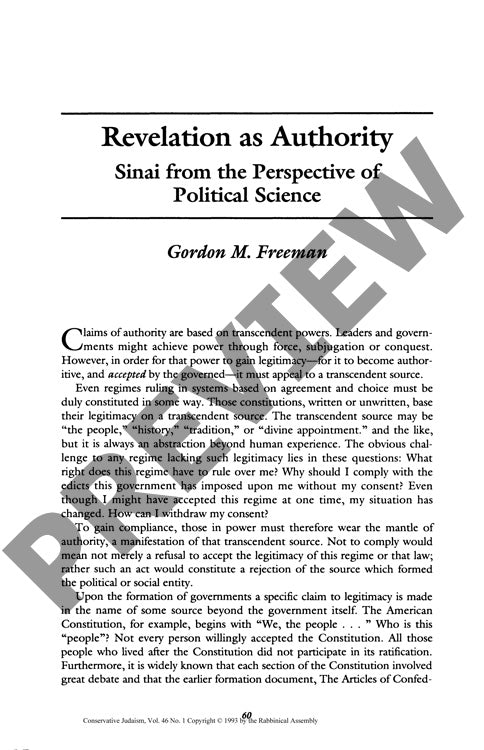Revelation as Authority Sinai from the P
Couldn't load pickup availability
When ancient rabbis debated whether the Torah was revealed all at once at Mount Sinai or progressively over time, they weren't simply discussing history - they were negotiating the foundations of religious and political authority. Through analysis of rabbinic texts, particularly Mishnah Avot, this research reveals how claims of divine revelation fundamentally serve as assertions of legitimate power rather than purely historical accounts. Political theory analysis demonstrates that all sustainable governance requires transcendent sources of legitimacy, whether divine, popular, or constitutional. The opening statement of Mishnah Avot strategically establishes rabbinic authority through a chain of tradition from Moses at Sinai while deliberately excluding competing power structures like the Davidic dynasty and priesthood. The divergent positions of Rabbi Ishmael and Rabbi Akiba on the scope of Sinaitic revelation reflect political calculations about maintaining communal stability while authorizing ongoing legal interpretation. Viewing revelation as political myth rather than historical fact resolves apparent contradictions between textual criticism and traditional claims, illuminating how Jewish liturgical practices, particularly the Torah service, function as ritualized reenactments that sustain communal consent to covenantal authority across millennia.

More Information
-
Physical Description
-
Publication Information
Published 1993
ISBN
-
Publication Credits
Gordon Freeman

